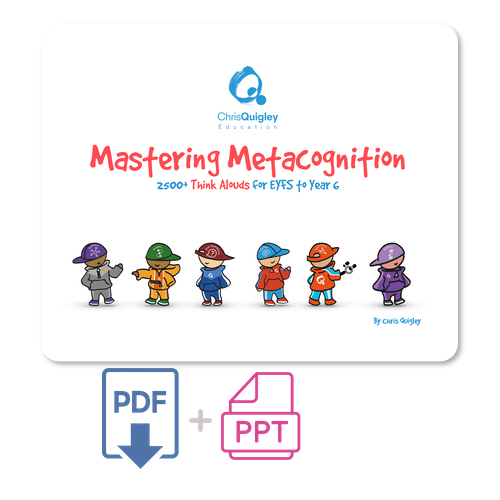
This groundbreaking resource pack is the first of its kind to provide a child-friendly and practical guide to teaching students metacognitive strategies. Crafted to be a comprehensive resource, this e-book and PowerPoint slides focus on harnessing the power of Think Alouds—a highly effective instructional technique that aids in making the invisible mental processes of cognition visible.
What's Included?
- A comprehensive overview of the evidence and benefits of teaching students metacognitive strategies
- Over 2500 Think Alouds tailored to the EYFS and Primary Curriculum, as well as many other popular areas of learning, such as Global Citizenship, Mental Health and Forest Schools
- PowerPoint templates and images to tailor the resources to individual lessons
What are the metacognitive strategies?
The resource outlines six metacognitive strategies, introduced by colourful, child-friendly characters.
The strategies are:
- Connect (with prior knowledge)
- Predict
- Ask Questions
- Visualise
- Seek Clues
- Reflect
Let's meet the 'Think Aloud Crowd', who help students with the strategies:
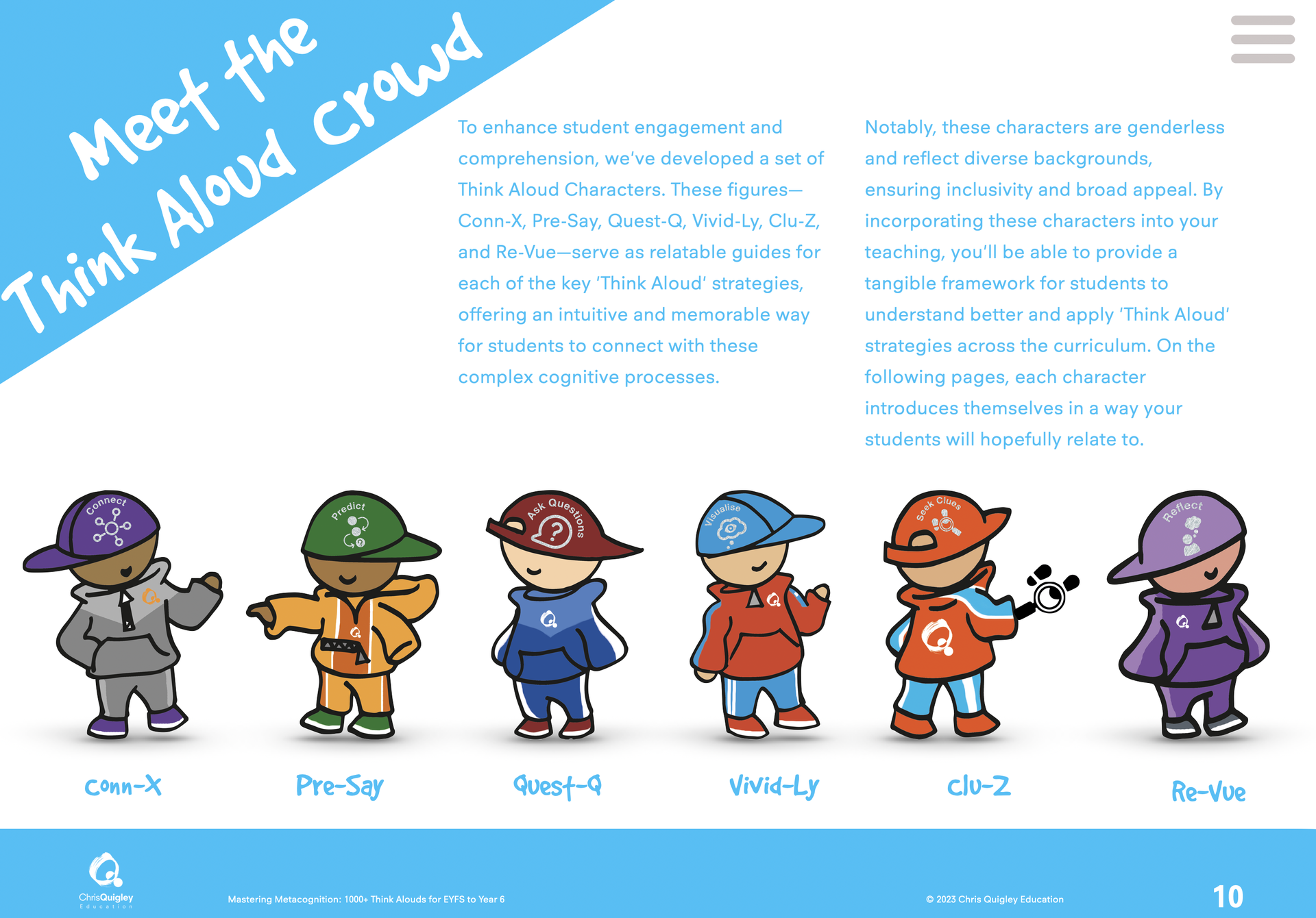
What are Think Alouds?
Think Alouds are verbal reflections made while performing a cognitive task, such as reading, problem-solving, or learning. Originating as a research tool in psychology, they've become a highly effective teaching method that enables learners to monitor their cognitive processes in real-time.
Using Think Alouds in the classroom
The Think Alouds form the basis for a pedagogical approach known as Metacognitive Teaching: an instructional approach that aims to enhance students' understanding and control of their cognitive processes. By using "Think Alouds”, teachers verbalise their thought processes as they tackle a task or problem, serving as a model for students. The objective is to make the invisible cognitive steps visible, allowing students to internalise these strategies for future tasks.
Some examples of Think Alouds
Here's Pre-Say The Predictor thinking aloud with children in EYFS (Personal and Emotional Development):
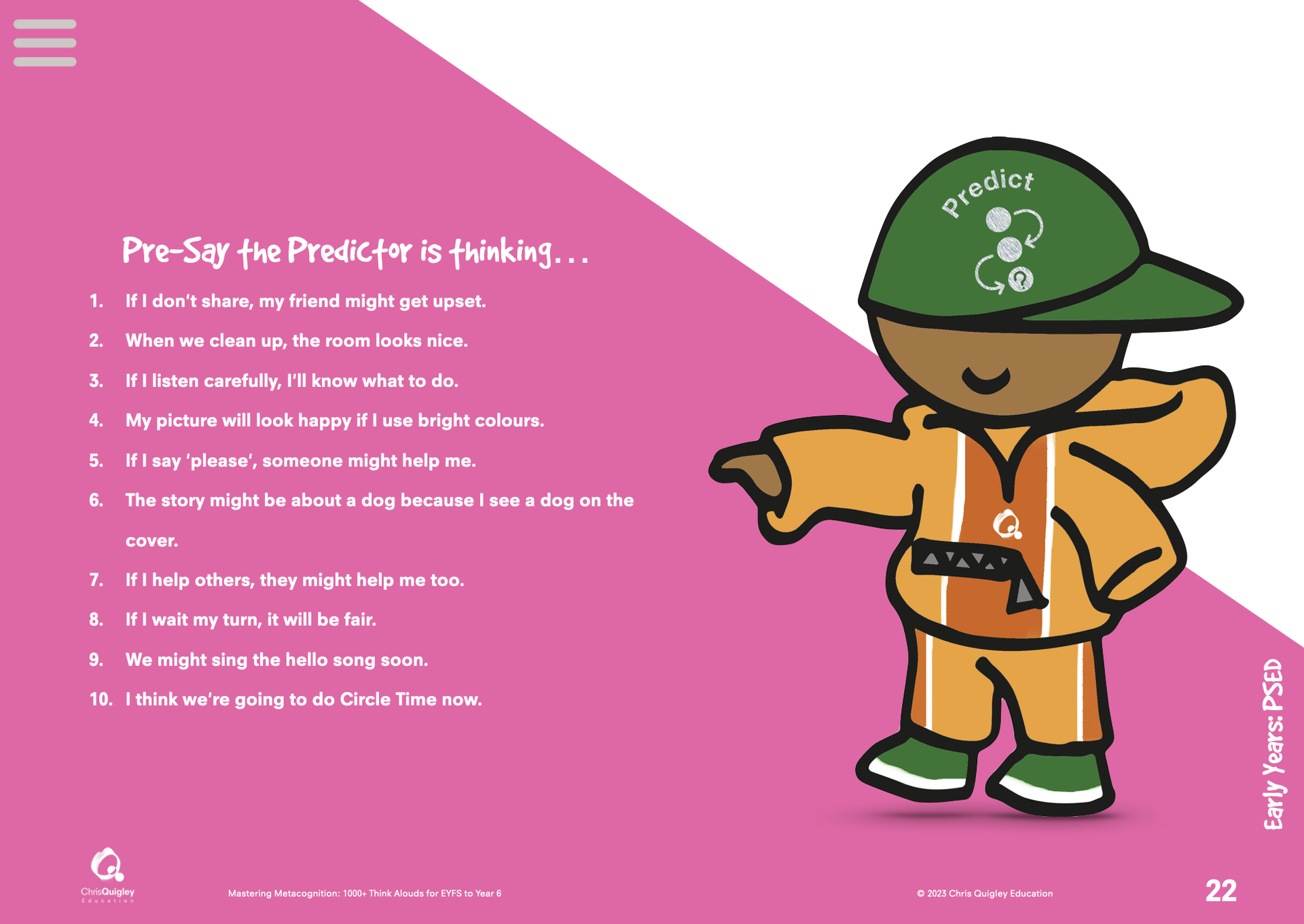
And here's Re-Vue The Reflective one, Thinking Aloud about the Evolution and Inheritance topic in Science:
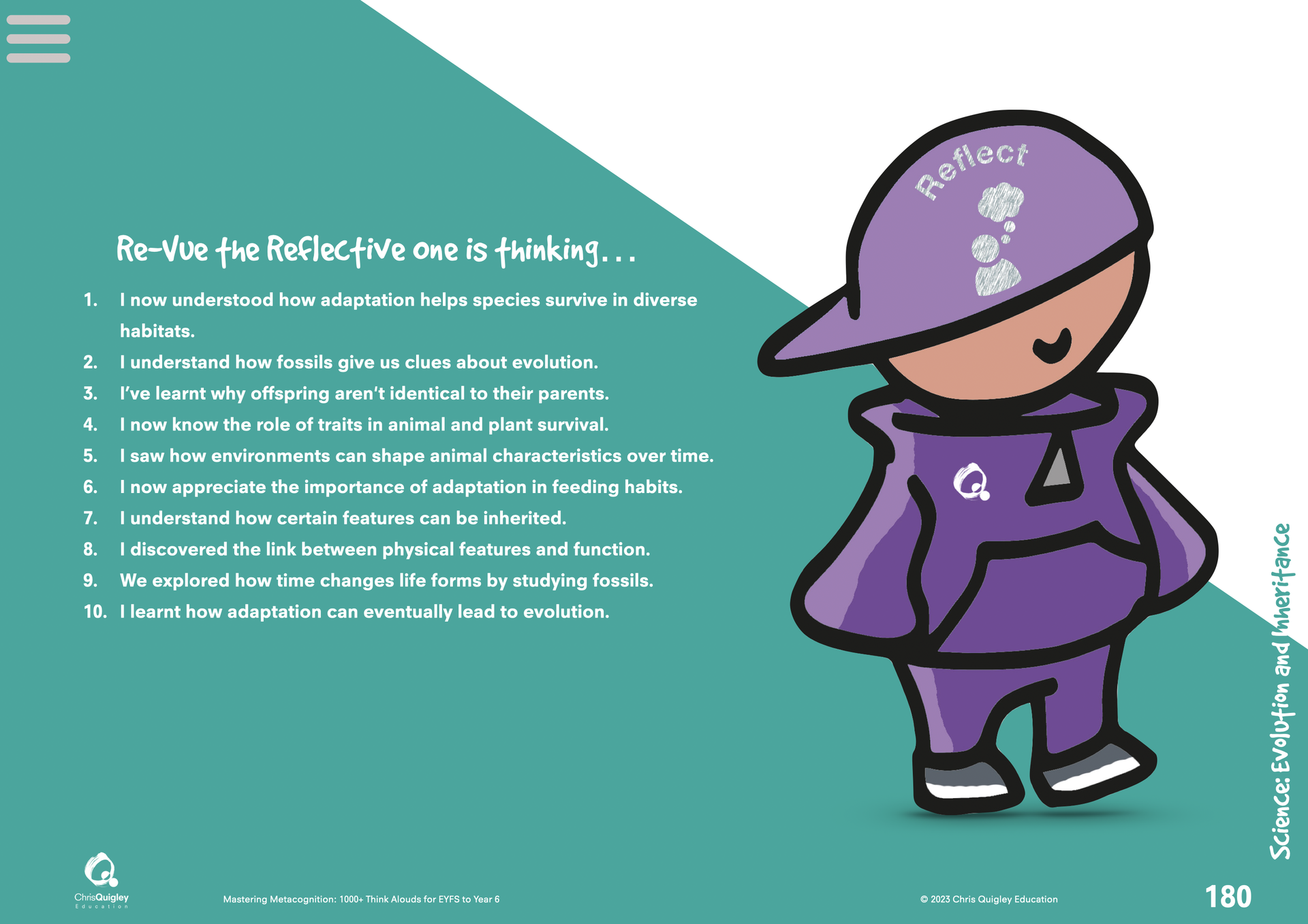
Here's the contents page so you can see the scope of the 2500+ Think Alouds:
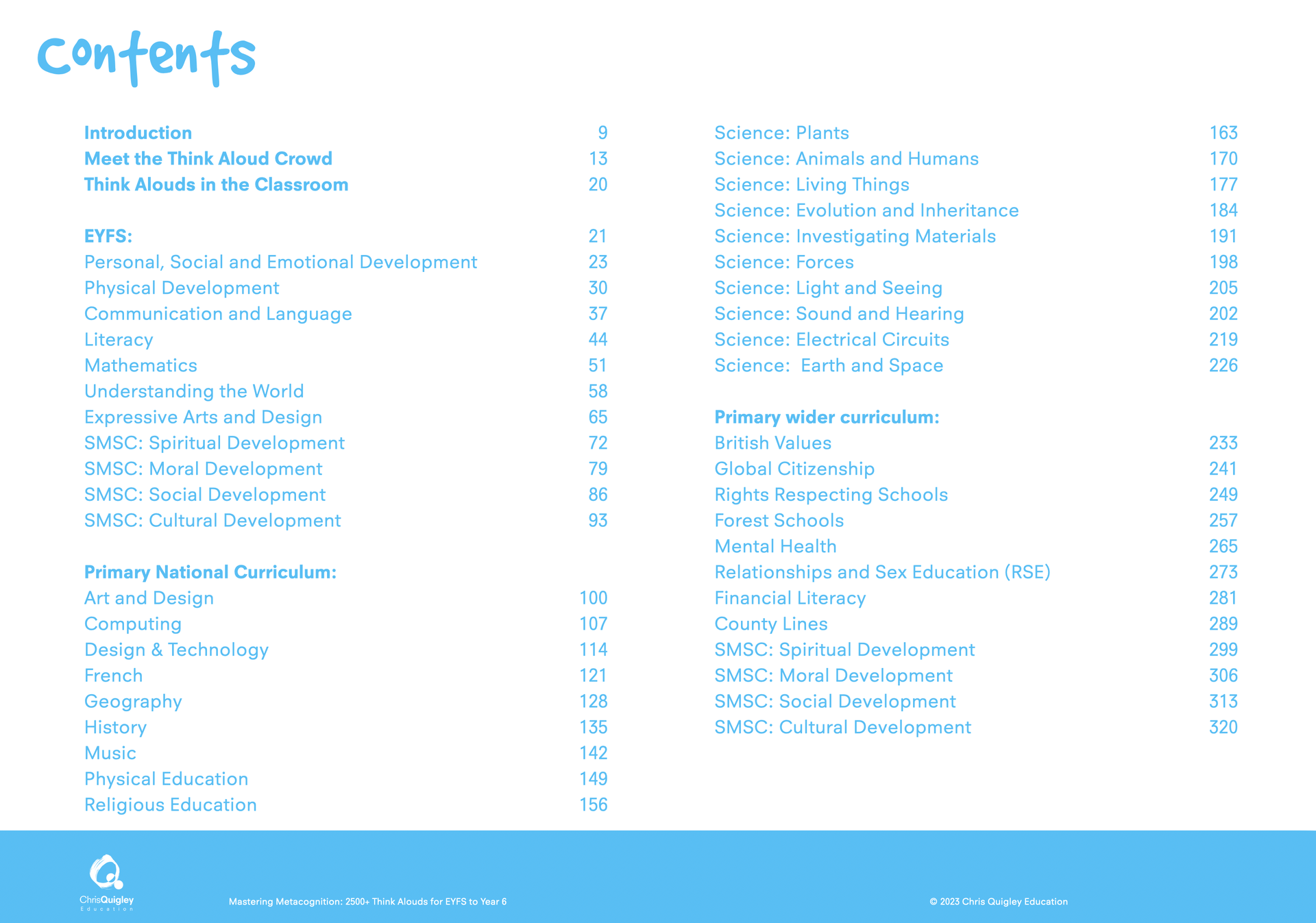
Watch a short introduction video below:

.png)
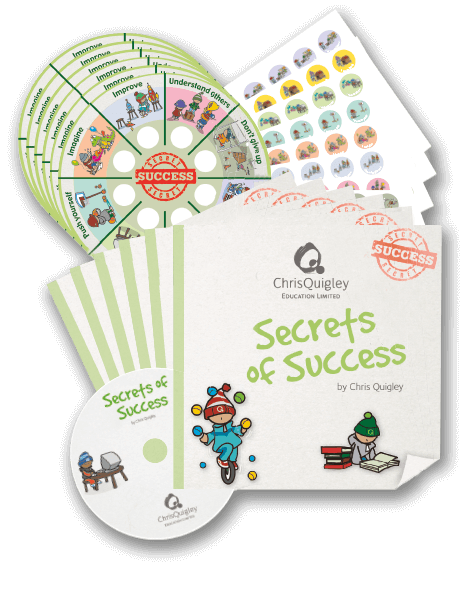
.png)
.png)

